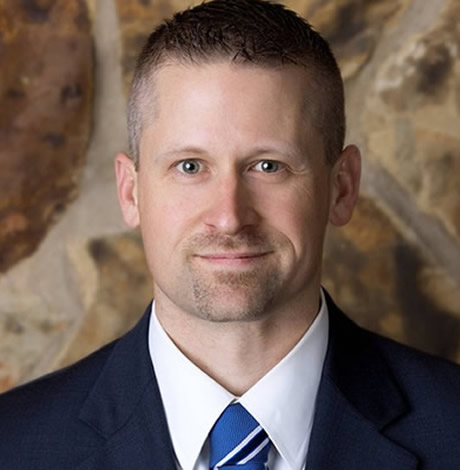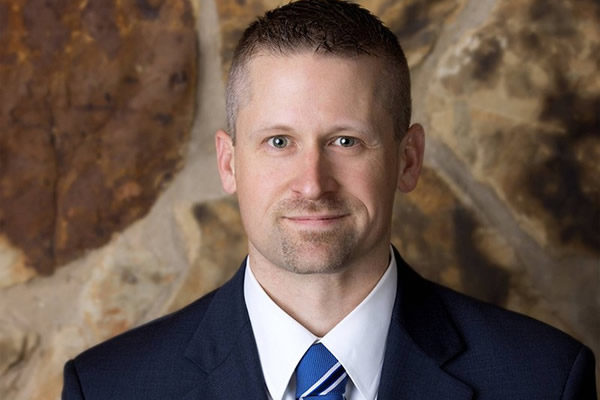News
Senate confirms anti-LGBT judicial nominee who stood up for Kim Davis
Trump nominee works ‘religious freedom’ law firm


Flouting the recognition of June as Pride Month, the U.S. Senate approved on Wednesday a Trump judicial nominee who has a long anti-LGBT record, including defense of Kim Davis for refusing to give marriage licenses to same-sex couples.
The Senate confirmed Matthew Kacsmaryk to a seat on the U.S. District Court for the Northern District of Texas by a vote of 52-46.
Joining the united Democratic caucus in opposition to Kacsmaryk was Sen. Susan Collins (R-Maine), who cited in a statement his “alarming bias against the rights of LGBTQ Americans and disregard for Supreme Court precedents.”
Sen. Tammy Baldwin (D-Wis.), the first out lesbian elected to the Senate, called on her colleagues from the Senate floor to vote against Kacsmaryk based on his anti-LGBT record, displaying on a placard the title of one of his writings: “The Inequality Act: Weaponizing Same-Sex Marriage.”
Baldwin said he heard from dozens of parents of transgender children who have voiced concern about the prospect of Kacsmaryk on the bench.
“I urge my colleagues to send the message to those children, their parents, and the broader LGBTQ community, and the country, that they do count, that they count, that they matter, that we hear their voices, and please, reject this nominee,” Baldwin said.
Also speaking out on the Senate floor against Kacsmaryk was Sen. Patty Murray (D-Wash.), who said his history demonstrates he won’t be an impartial judge and his views are “hateful and out the mainstream.”
“Mr. Kacsmaryk is another example of an extreme choice by President Trump to jam courts with individuals who will put their political views above the law and use their positions of power to chip away at people’s rights,” Murray said.
Before his confirmation, Kacsmaryk served as deputy general counsel of the Texas-based First Liberty Institute, an organization that seeks to advance religious freedom even at the expense of LGBT rights.
First Liberty Institute is responsible for the litigation filed by Aaron and Melissa Klein, the owners of “Sweetcakes by Melissa” in Oregon, who were fined $135,000 under state law for refusing to make a wedding cake to a lesbian couple and are now asserting a First Amendment right to refuse service to LGBT people.
Just this week, the U.S. Supreme Court vacated the fine and ordered the Oregon state courts to revisit the case under new guidance from the 2018 ruling in the Masterpiece Cakeshop case.
But Kacsmaryk has a long record of anti-LGBT positions and writings, defining the LGBT rights struggle at one time as a “clash of absolutes” between “religious liberty and sexual liberty.”
In response to the U.S. Supreme Court decision in favor of same-sex marriage nationwide, Kacsmaryk said the ruling found an “unwritten” right under the Fourteenth Amendment that was “a secret knowledge so cleverly concealed in the nineteenth century amendment that it took almost 150 years to find.”
When Rowan County Clerk Kim Davis refused to grant marriage licenses to same-sex couples, Kacsmaryk defended her, comparing her to Quakers who refuse fight in war and Jewish butchers who follow kosher dietary laws.
After the U.S. Equal Employment Opportunity Commission ruled in 2015 the prohibition on sex discrimination applies to cases of anti-gay discrimination, Kacsmaryk told The World, an outlet that reports on religious freedom, the decision was the latest in efforts to undermine marriage law.
“Traditionally and legally, we define sex according to chromosomes…That’s typically how we define sex,” Kacsmaryk said. “That’s how we ordered our marriage laws and made certain presumptions of paternity in the family code. All of that is cast into disarray if you declare sex irrelevant to marriage.”
When the Obama administration issued a rule interpreting the prohibition of sex discrimination under the Affordable Care Act to apply to transgender people, Kacsmaryk opposed the regulation and called it “radical self-definition and sex-actualization.”
LGBT rights supporters have also criticized Kacsmaryk for signing onto a comment when the rule was proposed saying transgender people suffer from a “psychological condition in need of care” and are “not a category of persons in need of special legal protection.”
The comment cites the opinion of a psychiatrist who has said having a transgender identity are suffering from a “delusion,” which critics have attributed to Kacsmaryk himself.
The White House didn’t respond to the Washington Blade’s request to comment on the LGBT opposition to Kacsmaryk.
Although Collins joined Democrats in voting against Kacsmaryk, the Maine Republican hasn’t applied a consistent standard with respect to judicial nominees based on their LGBT rights records.
For example, Collins last year voted in favor of the confirmation U.S. Circuit Judge Kyle Duncan despite his anti-LGBT record, which includes representing the Virginia school that sought to prevent transgender student Gavin Grimm from using the restroom consistent with his gender identity.
The Blade has placed a request in with Collins’ office on why she’d oppose Kacsmaryk, but not Duncan.

The Comings & Goings column is about sharing the professional successes of our community. We want to recognize those landing new jobs, new clients for their business, joining boards of organizations and other achievements. Please share your successes with us at [email protected].
Congratulations to Gil Pontes III on his recent appointment to the Financial Advisory Board for the City of Wilton Manors, Fla. Upon being appointed he said, “I’m honored to join the Financial Advisory Board for the City of Wilton Manors at such an important moment for our community. In my role as Executive Director of the NextGen Chamber of Commerce, I spend much of my time focused on economic growth, fiscal sustainability, and the long-term competitiveness of emerging business leaders. I look forward to bringing that perspective to Wilton Manors — helping ensure responsible stewardship of public resources while supporting a vibrant, inclusive local economy.”
Pontes is a nonprofit executive with years of development, operations, budget, management, and strategic planning experience in 501(c)(3), 501(c)(4), and political organizations. Pontes is currently executive director of NextGen, Chamber of Commerce. NextGen Chamber’s mission is to “empower emerging business leaders by generating insights, encouraging engagement, and nurturing leadership development to shape the future economy.” Prior to that he served as managing director of The Nora Project, and director of development also at The Nora Project. He has held a number of other positions including Major Gifts Officer, Thundermist Health Center, and has worked in both real estate and banking including as Business Solutions Adviser, Ironwood Financial. For three years he was a Selectman, Town of Berkley, Mass. In that role, he managed HR and general governance for town government. There were 200+ staff and 6,500 constituents. He balanced a $20,000,000 budget annually, established an Economic Development Committee, and hired the first town administrator.
Pontes earned his bachelor’s degree in political science from the University of Massachusetts, Dartmouth.
Kansas
ACLU sues Kansas over law invalidating trans residents’ IDs
A new Kansas bill requires transgender residents to have their driver’s licenses reflect their sex assigned at birth, invalidating current licenses.

Transgender people across Kansas received letters in the mail on Wednesday demanding the immediate surrender of their driver’s licenses following passage of one of the harshest transgender bathroom bans in the nation. Now the American Civil Liberties Union is filing a lawsuit to block the ban and protect transgender residents from what advocates describe as “sweeping” and “punitive” consequences.
Independent journalist Erin Reed broke the story Wednesday after lawmakers approved House Substitute for Senate Bill 244. In her reporting, Reed included a photo of the letter sent to transgender Kansans, requiring them to obtain a driver’s license that reflects their sex assigned at birth rather than the gender with which they identify.
According to the reporting, transgender Kansans must surrender their driver’s licenses and that their current credentials — regardless of expiration date — will be considered invalid upon the law’s publication. The move effectively nullifies previously issued identification documents, creating immediate uncertainty for those impacted.
House Substitute for Senate Bill 244 also stipulates that any transgender person caught driving without a valid license could face a class B misdemeanor, punishable by up to six months in jail and a $1,000 fine. That potential penalty adds a criminal dimension to what began as an administrative action. It also compounds the legal risks for transgender Kansans, as the state already requires county jails to house inmates according to sex assigned at birth — a policy that advocates say can place transgender detainees at heightened risk.
Beyond identification issues, SB 244 not only bans transgender people from using restrooms that match their gender identity in government buildings — including libraries, courthouses, state parks, hospitals, and interstate rest stops — with the possibility for criminal penalties, but also allows for what critics have described as a “bathroom bounty hunter” provision. The measure permits anyone who encounters a transgender person in a restroom — including potentially in private businesses — to sue them for large sums of money, dramatically expanding the scope of enforcement beyond government authorities.
The lawsuit challenging SB 244 was filed today in the District Court of Douglas County on behalf of anonymous plaintiffs Daniel Doe and Matthew Moe by the American Civil Liberties Union, the ACLU of Kansas, and Ballard Spahr LLP. The complaint argues that SB 244 violates the Kansas Constitution’s protections for personal autonomy, privacy, equality under the law, due process, and freedom of speech.
Additionally, the American Civil Liberties Union filed a temporary restraining order on behalf of the anonymous plaintiffs, arguing that the order — followed by a temporary injunction — is necessary to prevent the “irreparable harm” that would result from SB 244.
State Rep. Abi Boatman, a Wichita Democrat and the only transgender member of the Kansas Legislature, told the Kansas City Star on Wednesday that “persecution is the point.”
“This legislation is a direct attack on the dignity and humanity of transgender Kansans,” said Monica Bennett, legal director of the ACLU of Kansas. “It undermines our state’s strong constitutional protections against government overreach and persecution.”
“SB 244 is a cruel and craven threat to public safety all in the name of fostering fear, division, and paranoia,” said Harper Seldin, senior staff attorney for the ACLU’s LGBTQ & HIV Rights Project. “The invalidation of state-issued IDs threatens to out transgender people against their will every time they apply for a job, rent an apartment, or interact with police. Taken as a whole, SB 244 is a transparent attempt to deny transgender people autonomy over their own identities and push them out of public life altogether.”
“SB 244 presents a state-sanctioned attack on transgender people aimed at silencing, dehumanizing, and alienating Kansans whose gender identity does not conform to the state legislature’s preferences,” said Heather St. Clair, a Ballard Spahr litigator working on the case. “Ballard Spahr is committed to standing with the ACLU and the plaintiffs in fighting on behalf of transgender Kansans for a remedy against the injustices presented by SB 244, and is dedicated to protecting the constitutional rights jeopardized by this new law.”
National
After layoffs at Advocate, parent company acquires ‘Them’ from Conde Nast
Top editorial staff let go last week

Former staff members at the Advocate and Out magazines revealed that parent company Equalpride laid off a number of employees late last week.
Those let go included Advocate editor-in-chief Alex Cooper, Pride.com editor-in-chief Rachel Shatto, brand partnerships manager Erin Manley, community editor Marie-Adélina de la Ferriére, and Out magazine staff writers Moises Mendez and Bernardo Sim, according to a report in Hollywood Reporter.
Cooper, who joined the company in 2021, posted to social media that, “Few people have had the privilege of leading this legendary LGBTQ+ news outlet, and I’m deeply honored to have been one of them. To my team: thank you for the last four years. You’ve been the best. For those also affected today, please let me know how I can support you.”
The Advocate’s PR firm when reached by the Blade said it no longer represents the company. Emails to the Advocate went unanswered.
Equalpride on Friday announced it acquired “Them,” a digital LGBTQ outlet founded in 2017 by Conde Nast.
“Equalpride exists to elevate, celebrate and protect LGBTQ+ storytelling at scale,” Equalpride CEO Mark Berryhill said according to Hollywood Reporter. “By combining the strengths of our brands with this respected digital platform, we’re creating a unified ecosystem that delivers even more impact for our audiences, advertisers, and community partners.”
It’s not clear if “Them” staff would take over editorial responsibilities for the Advocate and Out.
-

 Federal Government5 days ago
Federal Government5 days agoTwo very different views of the State of the Union
-

 Virginia5 days ago
Virginia5 days agoVa. activists preparing campaign in support of repealing marriage amendment
-

 Opinions5 days ago
Opinions5 days agoThe global cost of Trump’s foreign aid ideology
-

 Opinions4 days ago
Opinions4 days agoCriteria for supporting a candidate in D.C.




















